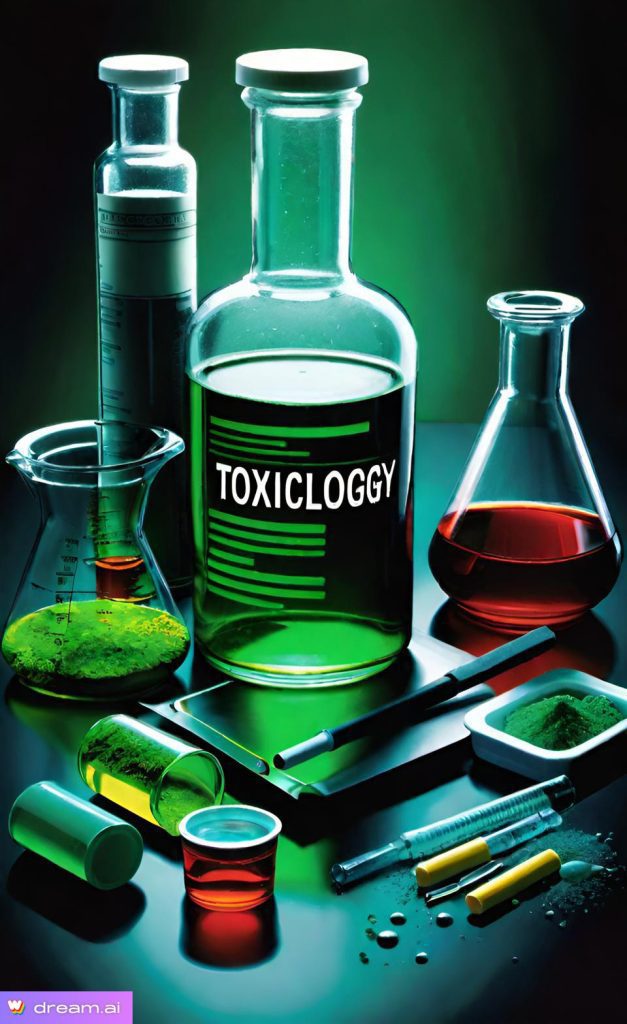Introduction
Toxicology is the scientific study of the adverse effects of chemicals on living organisms. It is a multidisciplinary field that combines biology, chemistry, and medicine to assess the risks associated with exposure to toxins. Whether you’re studying environmental toxicology, forensic toxicology, or pharmaceutical toxicology, the subject can be challenging due to its complex chemical and biological interactions.
If you’re struggling with assignments, Toxicology homework help can provide essential guidance to understand key concepts, research methodologies, and data interpretation techniques. This guide will cover essential toxicology topics, study resources, and expert tips to help you succeed in your coursework.

Understanding Toxicology
What is Toxicology?
Toxicology is the study of poisons, toxins, and their effects on biological systems. It evaluates the exposure, dose-response relationships, and mechanisms of toxic substances to prevent and mitigate their harmful effects.
Branches of Toxicology
- Environmental Toxicology – Examines how pollutants affect ecosystems.
- Forensic Toxicology – Identifies toxins in legal and criminal investigations.
- Pharmaceutical Toxicology – Studies drug interactions and side effects.
- Occupational Toxicology – Focuses on workplace exposure to hazardous substances.
- Clinical Toxicology – Deals with diagnosing and treating poisonings.
External Resource:
- Society of Toxicology (SOT) – A leading organization for toxicology research and education.
Why Toxicology Matters
Toxicology plays a vital role in public health, environmental protection, and drug safety. Understanding toxic substances helps:
- Prevent chemical hazards in food, water, and air.
- Develop safe pharmaceuticals through rigorous drug testing.
- Investigate poisoning cases in forensic toxicology.
- Regulate industrial chemicals to protect workers and consumers.
With increasing concerns about pollution, chemical safety, and disease prevention, toxicologists are in high demand across government agencies, pharmaceutical companies, and research institutions.
Common Toxicology Homework Topics
If you need Toxicology homework help, your assignments might cover:
- Dose-Response Relationships – Understanding how the toxicity of a substance changes with dose levels.
- Biotransformation & Metabolism – How the body processes and eliminates toxins.
- Toxicokinetics – The absorption, distribution, metabolism, and excretion (ADME) of chemicals.
- Heavy Metal Toxicity – The harmful effects of lead, mercury, arsenic, and cadmium.
- Pesticides & Herbicides – How agricultural chemicals affect human health and ecosystems.
- Endocrine Disruptors – Chemicals that interfere with hormonal balance.
- Risk Assessment & Regulation – Evaluating the safety of chemicals under regulatory frameworks.
Each topic requires strong analytical skills, understanding of chemical properties, and application of toxicological principles.
External Resource:
- National Institute of Environmental Health Sciences (NIEHS) – Provides in-depth research on environmental toxins.
How to Approach Toxicology Assignments
1. Understand the Assignment Requirements
Read your homework instructions carefully. Determine whether you’re expected to:
- Analyze toxicological case studies.
- Perform calculations for dose-response relationships.
- Compare different toxicological testing methods.
- Research the effects of specific toxins on human health.
2. Use Reliable Sources
Since toxicology involves scientific research, use peer-reviewed journals, government reports, and toxicology databases.
Recommended Resources:
3. Organize Your Assignment
Introduction
- Define toxicology and its importance.
- Explain the scope of your homework topic.
Main Body
- Present toxicological theories and mechanisms.
- Use real-world examples and case studies.
- Discuss laboratory methods for toxicity testing.
Conclusion
- Summarize key findings.
- Highlight the importance of toxicological safety measures.
Key Concepts in Toxicology
1. Dose-Response Relationship
The dose-response curve helps toxicologists understand how different concentrations of a toxin impact biological systems.
Example: A small dose of caffeine can be harmless, while excessive amounts can be toxic.
2. Biotransformation & Metabolism
Toxicants undergo chemical transformations in the body, often through liver enzymes. Some substances become more toxic after metabolism (e.g., methanol converting to formaldehyde).
3. Toxicokinetics
This involves studying how chemicals are:
- Absorbed (through skin, ingestion, or inhalation).
- Distributed (through blood circulation).
- Metabolized (transformed by liver enzymes).
- Excreted (removed via urine, feces, or sweat).
External Resource:
Challenges in Toxicology Homework & Solutions
1. Understanding Chemical Interactions
Toxic substances often interact with biological molecules, making their effects complex.
Solution: Refer to biochemistry textbooks and online courses for molecular toxicology basics.
2. Toxicity Calculations
Assignments may require mathematical models to determine LD50 (lethal dose for 50% of a population).
Solution: Use online tools like the EPA’s risk assessment calculators.
3. Finding Reliable Data
Toxicology research requires accurate chemical exposure data.
Solution: Utilize databases like ToxNet and EPA’s IRIS (Integrated Risk Information System).
Best Platforms for Toxicology Homework Help
If you need additional assistance, the following platforms provide Toxicology homework help:
- Khan Academy – Free educational videos on toxicology principles.
- Coursera – Offers toxicology courses from top universities.
- Chegg Study – Provides textbook solutions and tutoring.
- ScienceDirect – Access peer-reviewed toxicology research articles.
Tips for Excelling in Toxicology Assignments
1. Keep Up with Scientific Research
Read new studies and regulatory updates on toxic substances.
2. Join Online Toxicology Communities
Engage in forums like Reddit r/toxicology or LinkedIn toxicology groups for expert insights.
3. Develop Strong Analytical Skills
Practice interpreting toxicology case studies and lab reports.
4. Seek Help from Professors or Tutors
Don’t hesitate to ask for clarification on complex toxicology concepts.
Conclusion
Toxicology is a critical field that helps ensure public health, environmental safety, and drug efficacy. By understanding toxic substances, students contribute to advancements in healthcare, law enforcement, and environmental protection.
If you need Toxicology homework help, leveraging scientific resources, expert tutoring, and structured study techniques will improve your comprehension and performance in toxicology assignments.


